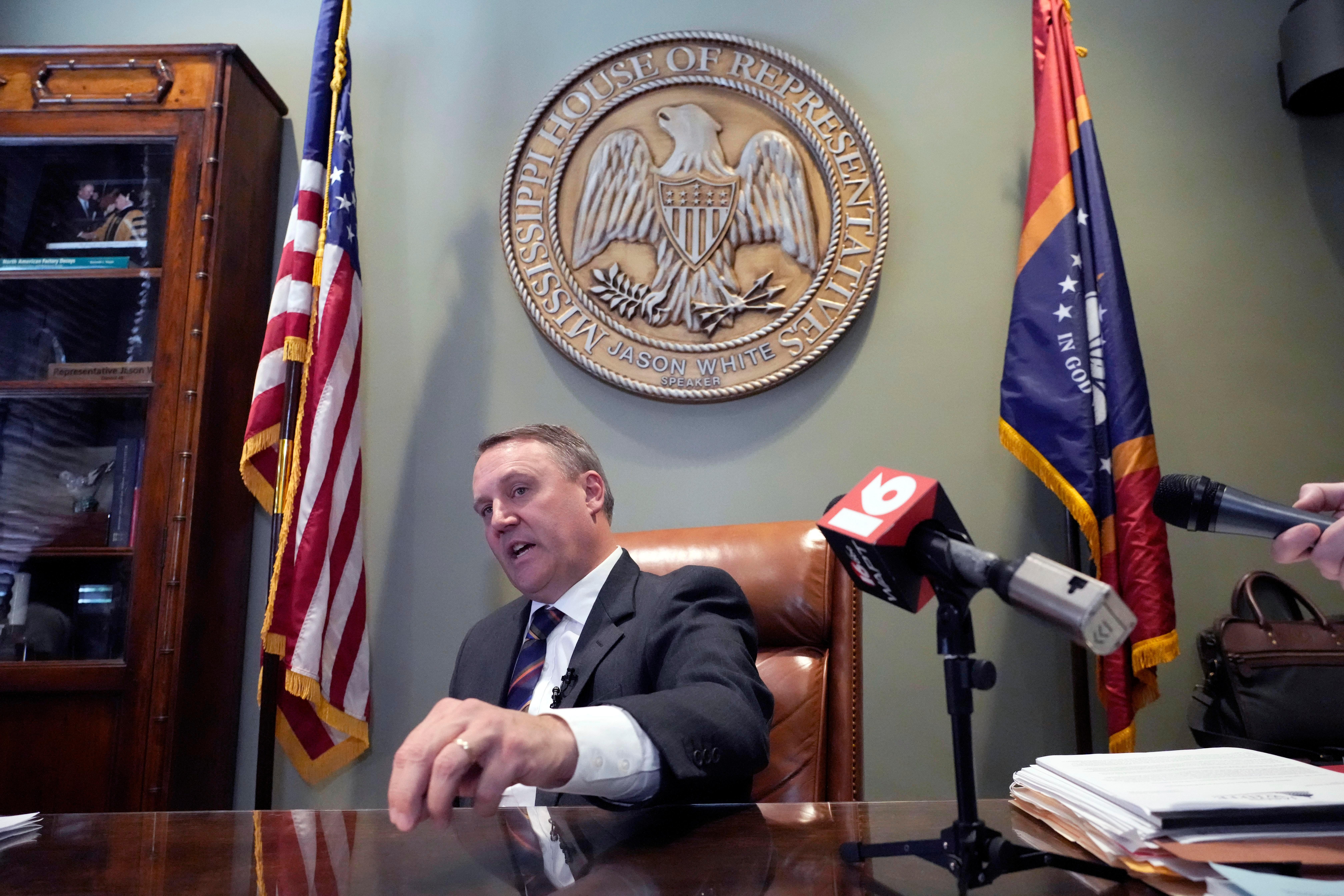During a meeting with the press on Monday, White said he will appoint between 15 and 18 House members to a committee on tax reform that will hold hearings throughout the fall and provide recommendations to lawmakers before the 2025 session.
White’s biggest goal for tax reform is to see Mississippi's personal income tax phased out and replaced with a consumption tax. Under that model, people would be taxed when they spend money instead of being taxed on their earnings.
It’s not clear exactly how a consumption tax model would look in Mississippi and how long that shift would take.
“That (income tax elimination) may take longer than some people want, but we've got to be smart about how we do it,” White said.
The income tax currently provides around one-third of the state’s general fund revenue. White said taxes would have to be raised in other areas for the state to be able to afford the income tax elimination and other tax cuts he wants to see implemented.
While eliminating the income tax is a more long-term goal, White says he wants to get taxpayers more timely relief by cutting the state’s highest in the nation grocery tax.
“My goal is to cut it in at least half, get it from 7 to 3.5 percent, as soon as possible,” White said. “That would be a part of any (tax reform) package you saw.”
While cutting that tax would provide relief to Mississippians, White acknowledged an issue with implementing it.
“The grocery tax is the number one sales tax generator for most medium and small towns,” White said. “… That's a double whammy. Cities would have to be made whole.”
To make up for this lost revenue, White floated the idea of allowing communities to charge their own sales taxes. In exchange, the state would stop diverting a portion of the sales tax revenue collected to cities. That diversion is a significant source of revenue for local governments. In January, alone, the city of Jackson received over $2.7 million from the sales tax kickback.
One other priority for White’s tax reform committee is finding a new dedicated source of revenue for the Mississippi Department of Transportation. The agency’s work is currently funded through an 18.4 cents per gallon fuel tax, but the state’s three transportation commissioners say more funding is needed due to the rising costs of materials and labor.
“The costs there are runaway,” White said. “They are exorbitant when it comes to building highways and bridges, and maintaining them as well.”




